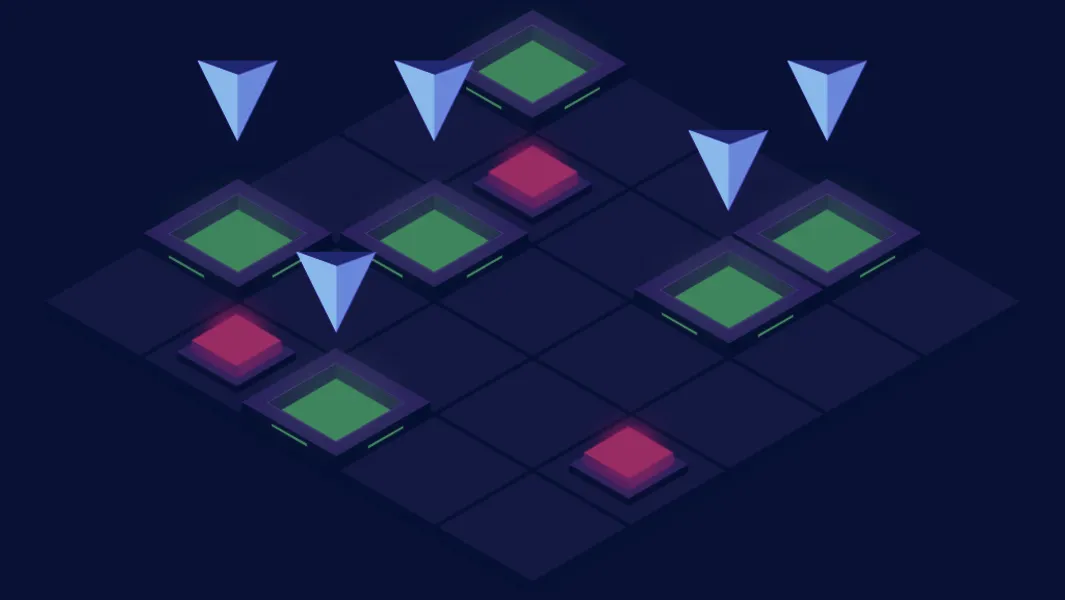We do the research, you get the alpha!
The Verge cryptocurrency was once full of promise. Back in April, Verge lead developer Justin Erik Valo (aka Sunerok) vowed that a then-undisclosed partnership would propel the “secure and anonymous cryptocurrency” into the top three coins. He was so hyped about it he asked fans of the project to donate some $3 million to reveal the name. That name, it turns out, was Pornhub, the porn site that pulls in some 81 million people every day. While there was much rejoicing and cries of "biggest partnership in crypto history", the price jump failed to materialize.
Since then, Verge dropped to 41st in the market cap ratings, and it was beginning to look like just another network trying to pin its colors to porn. But a developer and lover of all things Verge is attempting to re-ignite the currency's fortunes with a Verge based gambling site. The first game in this speculator's stable? Minesweeper. Yep, the Microsoft Windows staple that was about as loved as Clippy.
Verge Mines is a slight odd-attempt to cash in on the swollen money cow that is the gaming industry. Following the likes of Decentraland, where a large tract of virtual property recently sold for 1.3 million MANA ($100,000), the newly incarnated Verge Mines similarly aims to get people spending their crypto. But instead of buying land, users pay to play a new version of Minesweeper. Behind this minefield of madness is actually an interesting point: when you play on gambling sites online, how do you know the site's owners aren't just cheating you out of your winnings? This crypto-based game is “provably fair,” meaning that the odds are actually fixed, and it can prove it.
Created on October 8 by a privacy-focused and, aptly, anonymous developer known as “Mines,” the game has already racked up 29,000 plays. Mines refuses to say how much money has been staked so far. By reviewing the last 20 games played as of the time of writing, it looks like users have thrown in 5.8 million XVG ($86,000), and lost every single time but Mines reassures us that the stats include practice games.
Mines has been a Verge advocate for more than a year and says he chose to use XVG as the in-game cryptocurrency because of its focus on privacy. “I've been keeping everything in XVG. I believe in the technology, and if someone wins big on the site, I want them to be able to withdraw their small fortune instantly,” says the anonymous developer.
The crypto version of the 1980s classic puzzle game uses the same cryptography that Bitcoin uses for security to prove that it is sticking by the rules. It uses hash functions which are practically impossible to reverse. Before you start the game, you receive a hashed version of the answers. It looks like this:
Hash: 90dbf316fb7bab403e26fa049cf259f4b5ea9a1089efd2d4d45e2afd2ab4a075
Now, if you had a supercomputer, and a few million years, you would be able to run the hash function in reverse and find the locations of the mines, in order to avoid them. However, in the pre-quantum computer age, this isn’t possible. So you must play the game and win or lose fair and square. Once the game is over, it gives you the secret key to crack the code which looks like this:
Game secret: 3-20-2[VQ5zrywGZktUT6LP
At this point, you likely already know the locations of the mines—having maybe stumbled on a few throughout the course of the game. But now you can check that the game was legit by hashing the code using a generator.
The more skeptical among you may be thinking the game could still rig the results by changing the locations of the mines during play and giving the gambler a new secret key. Possible. But then the key wouldn’t match the hash provided before the game. If they don’t match, the game was lying. If they do match, you have proof the game is telling the truth.
But what if the game finds two secret keys that result in the same hash? This would break the system. But it’s also exceedingly unlikely. So far, this (known as a collision) has never happened outside of the Large Bitcoin Collider. Unless Mines has his own quantum computer, we can rest assured. And for all the uncertainty in the crypto-sphere, that has to count for something.
Read Next: China’s new draconian crypto guidelines could ruin us all





